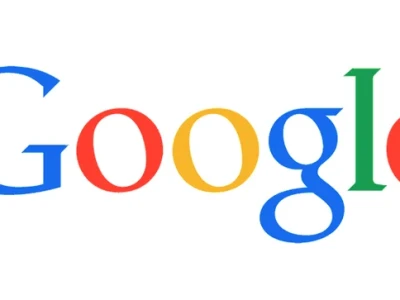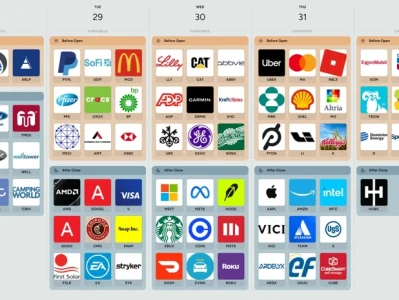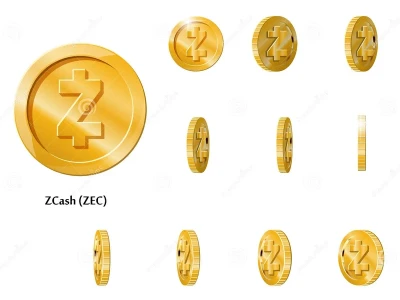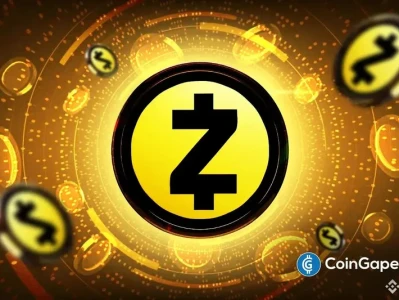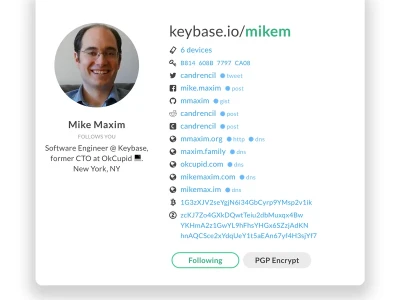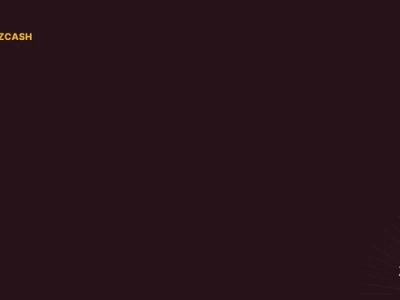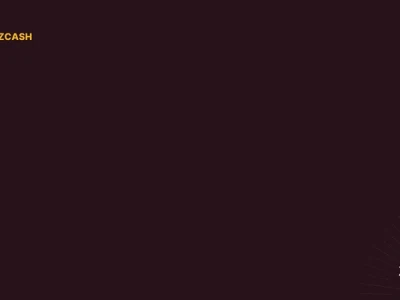Every so often in the world of technology, an old idea, one thought to be a relic of a bygone era, comes roaring back with such force that it shakes the very foundations of our current assumptions. We’re seeing that happen right now. For years, Zcash was a ghost, a footnote from the cypherpunk age of crypto, quietly humming in the background while flashier projects built on transparent, public ledgers captured the world’s attention.
And then, almost overnight, the ghost came back to life.
A staggering 380% surge in a month, a price tag blasting past its 2021 peak, and a market cap swelling to nearly $6 billion. You’ve probably seen the headlines, like Zcash Surpasses 2021 Peak as Traders Bet on Privacy Revival. But if you think this is just another speculative bubble, another coin-of-the-week fueled by market hype, you’re missing the profound shift that’s happening just beneath the surface. This isn't just a story about a token's price. I believe we are witnessing a powerful, collective reawakening to an idea our digital world has tried its best to forget: the fundamental human right to privacy.
The Architecture of Anonymity
Let’s take a step back. What Zcash brought to the table back in 2016 was nothing short of revolutionary. It forked Bitcoin’s brilliant code—its capped supply, its digital scarcity—but added a layer of cryptographic magic. It uses something called zero-knowledge proofs, or zk-SNARKs. Now, in simpler terms, this is a way for you to prove a statement is true without revealing any of the secret information behind it. Imagine wanting to prove to a bouncer you’re over 21 without ever showing them your driver’s license, your name, or your address. That’s the kind of power we’re talking about.
This enables what Zcash calls a "shielded pool." You can think of a normal blockchain, like Bitcoin or Ethereum, as a city square where every single financial conversation is broadcast over a giant loudspeaker for anyone to hear, forever. A shielded transaction, by contrast, is like stepping into a private, soundproof room for your conversation. The network knows a valid conversation took place, but it doesn't know who was talking or what they said.
For years, that room was mostly empty. But now, people are flooding in. The amount of ZEC held in these private, shielded addresses has surged to 4.5 million (Zcash shielded supply hits 4.5 million ZEC as privacy narrative reignites and token surges 7x). This isn't passive investment. This is an active choice. Holders are taking the extra step to move their assets out of the public square and into the private room. And when I first saw the chart of the shielded supply begin its steep, upward climb, I honestly just sat back in my chair, speechless. It was a data point that felt like a declaration—a quiet, digital rebellion against the cult of radical transparency.

Why does this matter so much? Because every single person who enters that shielded pool makes it exponentially more private for everyone else. It’s a network effect for anonymity. The bigger the crowd, the harder it is to pick out any single individual. Is this just a niche interest for a few privacy-pilled users, or is it the start of a much broader demand for financial sovereignty in an age of ever-increasing surveillance?
A Perfect Storm of Code and Conviction
So, what lit the fuse? The easy answer points to a perfect storm of catalysts. You have viral price predictions from influential figures like Arthur Hayes, renewed endorsements from industry veterans, and a market desperately rotating out of sideways-moving giants like Bitcoin and into assets with a powerful, ideological story.
Some of the chatter has centered on a supposed "halving" event, a scheduled reduction in the creation of new ZEC, meant to increase scarcity. Interestingly, it seems the market got the timing wrong—the next halving isn't until 2028. But in a way, the mistake is more revealing than the truth. It shows a market so hungry for assets with real, hard-coded scarcity and a philosophical backbone that it projected that narrative onto Zcash, whether it was technically accurate or not. It’s searching for conviction.
And you have this incredible confluence of events—viral price calls, a renewed global debate on digital IDs and financial surveillance, genuine technical upgrades improving Zcash’s core privacy tech, and a market starved for a real story—and it all ignites at once, reminding everyone that some ideas are too important to stay dormant forever.
Of course, this comes with its own set of challenges. Privacy is, as some have noted, a double-edged sword. It can attract regulatory scrutiny and makes things more complicated for large institutions bound by strict compliance rules. This tension is real, and it’s a conversation we absolutely need to have. But the very existence of this debate reminds me of the early arguments against sealed mail. Critics worried it would be used for conspiracies and crime, yet today we see it as a non-negotiable pillar of a free society. Are we not witnessing the 21st-century equivalent of that very same struggle? What does it say about our digital society if we decide that the only acceptable transactions are those conducted in full public view?
This isn’t about hiding. It’s about having the choice. The choice to have a private financial life, just as we have a private conversational life. Zcash’s resurgence suggests that this is a choice more and more people are demanding.
A Quiet Rebellion is Going Mainstream
Let's be clear. What we are seeing with Zcash is far more than a fleeting market trend. It is a powerful signal, a barometer of a deep and growing cultural sentiment. It’s the digital world’s way of saying, "We have not forgotten the value of privacy." For a decade, the dominant narrative has been that on the internet, transparency is inevitable and privacy is a nostalgic fantasy. This rally, rooted in both code and conviction, is a direct challenge to that assumption. It’s a vote for a future where our digital lives can have curtains, where we have the sovereign right to draw them closed. This is the ghost in the machine waking up, and it’s reminding us that some human values are too essential to ever be coded away.
